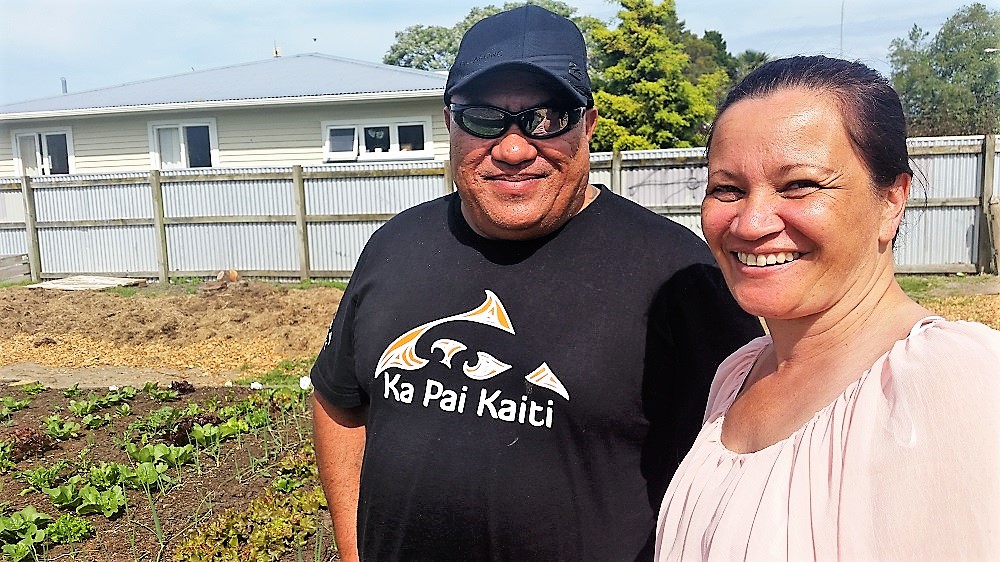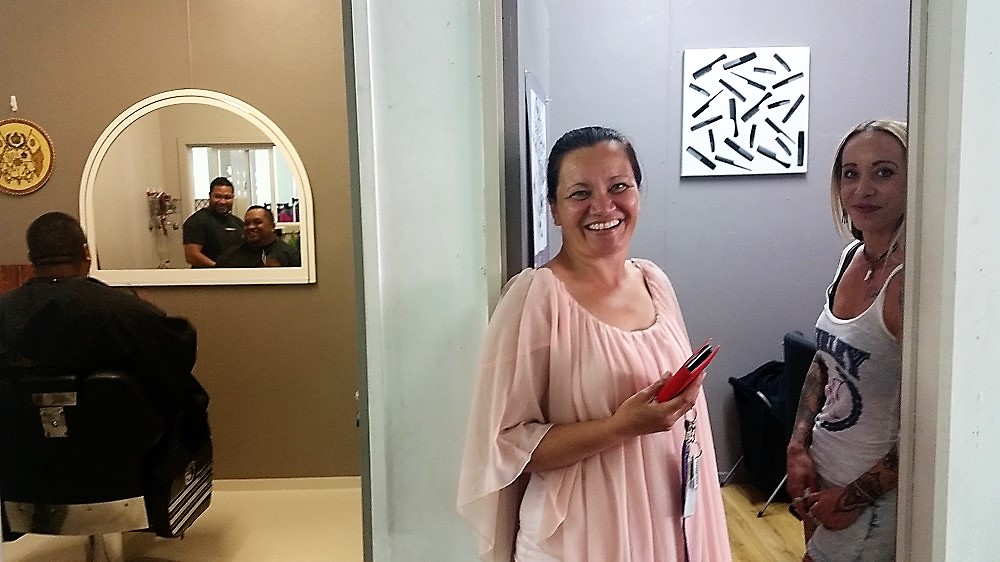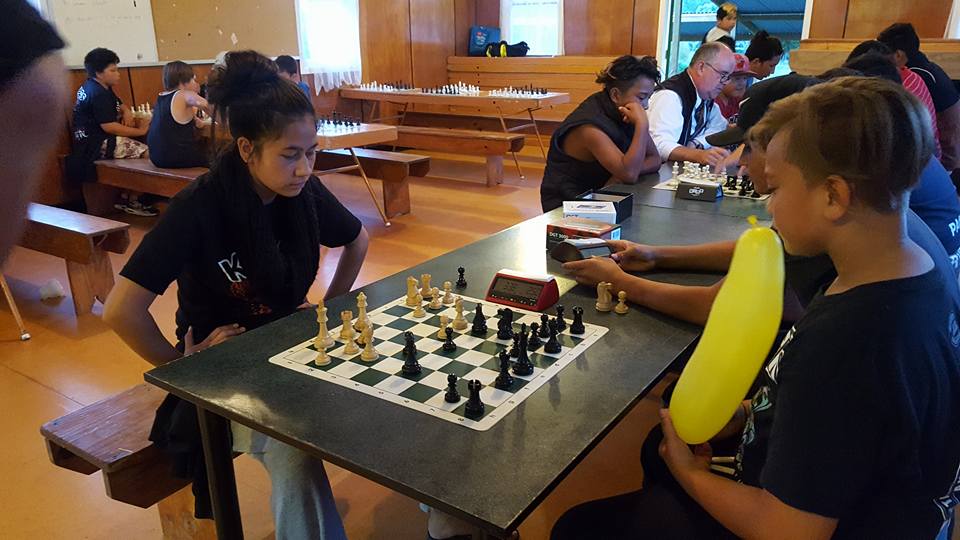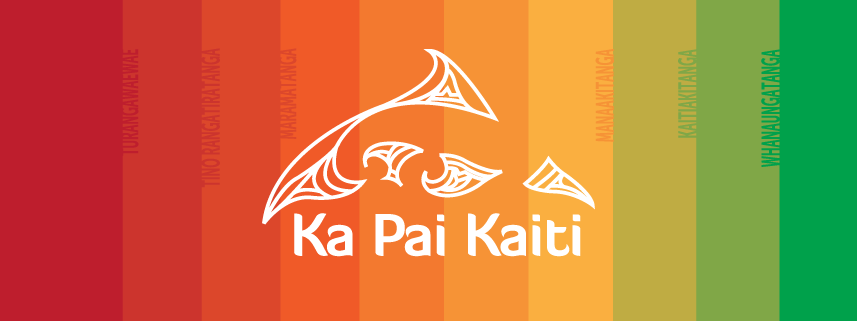When Tuta Ngarimu held his new born son in his arms 25 years ago, his life changed forever.
At the time, Tuta was a patched gang member and a dealer. He was taking care of business when his partner went into labour, which made him late for the baby’s birth, and he narrowly missed being hit by a car as he rushed across the road to the hospital.

Tuta and Kylee Ngarimu
When he did walk into the birthing suite this outwardly tough tāne was totally unprepared for the powerful emotions his beautiful, vulnerable pepe stirred within him.
“I didn’t know I could love someone this much. The feeling hit me so hard and I knew I had to protect this child with my life.”
“I realised that someone else thought the same about another baby; a baby that had grown into someone I was abusing by the way I was living at the time. I had to ask myself what gave me the right to be violent to someone else?”
Mana
Tuta’s courage in examining his own behaviour prompted him to act. He describes deconstructing events in his life, pulling back the layers and examining himself.
“I struggled with the concept of mana that I’d had as a young man until I realised that true mana is not attacking people to show that you’re strong. On the contrary, it’s holding others up so they can be tika and strong.”
At the time, Tuta was running the Mongrel Mob in Auckland while the Chapter’s President was in jail.
“I was living in two worlds, balancing the way I was starting to feel with my life in the Mob. I was feeling so bad but I realised that if I wanted to be a role model to my son and help him walk through life safely and achieve his potential, I needed to make a call.”
Tuta talked it over with the President, the godfather to one of his children and a man he still calls whānau, and decided to hand in his patch.
“Out of respect for the life I’d lived with him and the Mob, for the previous 30 years, I had to hand my patch in because I no longer believed in that way of life.”
Return home
Tuta returned home to Gisborne when there were still plenty of jobs. But, as the country’s economic direction changed, many of the industries he and his whanaunga worked in disappeared. Unemployment and associated social problems increased.
Tuta joined the Mana Party where he met his wife to be. Kylee was a mother of three adult children and had already overcome a whole host of challenges stemming from a dysfunctional birth family and an abusive first marriage, but she never forgot those who had helped her in her journey. Like Tuta, she knew that supporting others in their time of need was how she wanted to live her life.

Kylee Ngarimu (left) in one of the spaces leased to small businesses and artists through the Ka Pai Kaiti Trust
Tuta and Kylee had been running the Mana Party foodbank out of the shopping centre at Kaiti, a semi-rural outer suburb of Gisborne for two years when they were approached by members of the Ka Pai Kaiti Trust who’d been providing those in need with food, clothing and furniture for a number of years.
Five years and 4,000 food parcels later, Tuta and Kylee remain at the centre of a dynamic, responsive community hub focussed entirely on those that need their support.
And the need, says Kylee, is huge.
“People come in feeling heavy. You can see it as they walk through the door. We do what we can. We advocate for them, connect them to the right agency if that’s what’s needed, or just listen. It’s great to see the change in people after they’ve had some genuine interest taken in them and their problem.”
Strengthening community
E Tū Whānau loves supporting the Ka Pai Kaiti mahi because it is based on mana manaaki, aroha and kōrero awhi and all of the values that help make whānau stronger and more resilient. Ka Pai Kaiti is involved in a heap of socially positive community projects like regular events it calls E Tū Whānau days. These are held at local parks where the kai and entertainment is free and families can just relax and have a good time. These days also provide opportunities for whānau to kōrero with public agencies around challenging issues like family violence, suicide awareness and addiction.
Connecting whānau with agencies and other community initiatives is only one part of the Ka Pai Kaiti kaupapa. The Ka Pai Kaiti Trust now leases a number of once empty units surrounding their own modest office space. These are sublet cheaply to small business start-ups and community groups.
There’s a hairdresser, a barber, a miri miri practitioner and ta moko artists. Other artists use the space as a studio. It’s a busy, creative space.
The Ka Pai Kaiti Kings Chess Club is another runaway success.

The chess club has proven popular and other clubs have been set up in the area.
Inspired by the local hero of the movie ‘Dark Horse’, the late Genesis Potini, the Trust set up a weekly chess club for tamariki of all ages. More than 50 kids turn up every week and the concept is spreading. Another Gisborne club has started up in Patutahi, while others are now running in Tologa Bay and Te Aroha. As a result, an interclub chess tournament is planned for later in the year.
“Chess teaches kids resilience and strategic thinking and it points them away from that hit and miss life I lived as a kid,” says Tuta.
Tackling local issues
Combating drug and alcohol addiction amongst local whānau is another priority for the Trust.
They’re currently talking with residential addiction services about setting up a local tikanga based drug rehabilitation unit, but funding is a problem.
The Ministry of Health’s population based formula for funding addiction services means there are no rehab facilities in Tairawhiti. People must leave their whānau and travel outside the area to get help and that creates barriers to successful treatment.
Tuta and the Ka Pai Kaiti Trust believe that the funding model should change to one where resources are provided by need rather than population. To that end, they have a claim before the Waitangi Tribunal which states that, under the Treaty of Waitangi the onus is on the Crown to look after the health of Māori people and the current formula does not do that.
Growing healthy kai
You’d think Tuta and Kylee would have their hands full organising and co-ordinating all these different activities but it seems the more they do, the more ideas they have to do more.
A year or so ago they had the bright idea of turning an empty corner section behind the shopping centre into a thriving community garden. Everyone from local business people, school kids to PD workers helped build and plant the raised gardens and a core group of keen locals maintains it. This last summer’s harvest was way beyond expectations.
“We got tons of food out of the garden and ended up feeding so many families. We’re now getting our head around exactly what to grow. People want silverbeet, cabbage, kale, kamo kamo – good healthy kai. The garden has become such an awesome place. People work there as they want or simply enjoy strolling through it. Increasingly, it’s a place where people just stop for a while and talk with each other,” says Tuta.
Kylee sums their whole kaupapa up in one sentence.
“It’s all about breaking down barriers, building trust and opening the hearts of our whānau and tamariki.”
Ka Pai Kaiti. Ka Pai.

